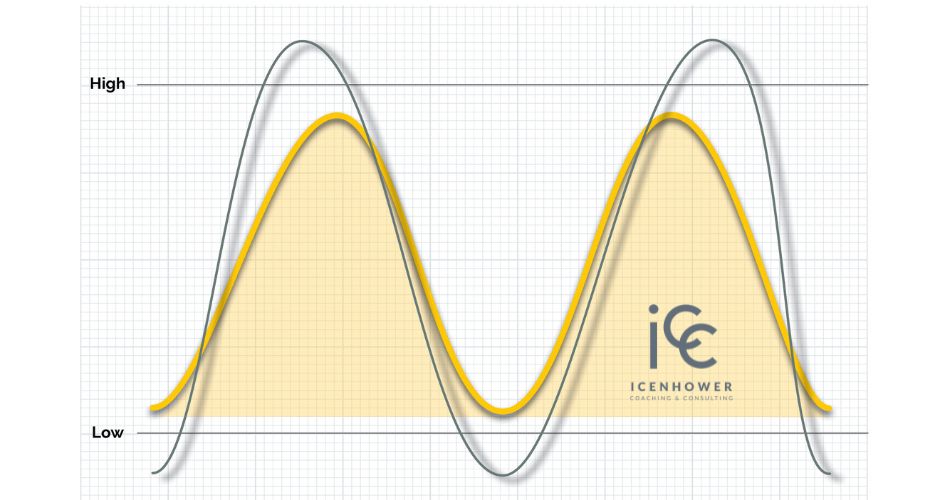When it comes to Realtor training topics, professionalism training is essential regardless of experience level. It really boils down to mindset and motivation. This is where we cross into the realm of emotions.
When you’re having a bad day, and something negative happens in your personal life or professional life, it is natural to feel angry and upset. It is also natural for you to want to vent.
In the real estate profession, you have a lot of opportunities to vent negative emotions. It can lead you down a dangerous path.
Let’s say you are working on a closing and something goes sideways with the other agent. They dropped the ball, and now closing is delayed. Now, you’re upset.
But, you need to talk to a whole bunch of people to help manage the issue. Likely you need to talk to the other agent, possibly the loan officer, title company, etc. You need to take care to not use these conversations to vent about how angry you are.
Remember, your thoughts control your words which control your behavior. So, you need to watch that first jump from thoughts to words. Because if your words come out poorly, unfortunately, your behavior is likely to back it up. This is how the spiral happens, which leads us to bad habits and ultimately begins to shape our character (and not in a good way).
If you’ve listened to me cover Realtor training topics related to mindset before, you’ll have already heard this because I say it a lot. You must keep your emotions between the lines.
What exactly does that mean? Well, I created a visual that will help you understand this better and hopefully remember it going forward.

You can see that there are two lines on this graphic. There’s a “High” emotion line and a “Low” emotion line.
The gray line on this graphic represents a real estate agent who is an emotional roller coaster. They have really high “Highs” and really low “Lows.” These agents aren’t keeping their emotions between the lines. They get super excited, probably a little too excited, when things are going well. And they get super bummed out, probably a little too bummed out, when things are not going well.
What you want is to be more subtle in your emotional display. You can see what this would look like if you look at the yellow line on this graphic. The yellow line still displays a range of emotion, but it keeps it more regulated and less extreme in the “Highs” and “Lows.”
I want you to simply regulate it to keep your emotions between the “High” line and the “Low” line, becoming a more steady presence and less erratic. Follow the yellow line as a model.
Become a more steady presence, and less erratic.
Brian Icenhower
Bad things happen. Transactions fall through. People do stupid things that negatively affect your personal life or professional life. You will have bad days! And that’s okay. But it is important to regulate your response to those emotions.
A controlled approach does not usually happen naturally. This is a learned skill that you need to consciously work on. That’s why this is one of those Realtor training topics that needs to be covered regularly.
In my opinion, gaining control of your emotions is the definition of professionalism. Your clients will freak out. They will get emotional and lose control. But that’s not your role here. You are supposed to be the professional in the room who keeps everyone calm in stressful situations.
In my opinion, gaining control of your emotions is the definition of professionalism.
Brian Icenhower
Can you imagine a doctor, delivering bad news to a patient, saying, “OMG you have cancer! I’m a mess right now. I think I need to go home. This is awful for me to have to deliver this news to you. I can’t believe this is happening to me. You’re going to die and I can’t handle this.”
A doctor is supposed to be the professional, calming influence in the doctor/patient relationship. The doctor can be upset and solemn when delivering bad news, but the doctor must stop just short of going below the “Low” line.
This is business. It’s okay for you to enjoy your job, but there are limits. It’s okay to be up and down, but you must stay between the lines. If you go above or below the lines, it starts to rub off on other people. Quite frankly, it also makes you look very unprofessional.
Avoid the real estate roller coaster ride. If you want to act like a true professional, act as if you are someone who has done it before. Getting too “High” outside the lines with celebratory emotions makes you look like your successes are few and far between. It doesn’t look professional. It’s exhausting. And it sets you up for riding this roller coaster of emotions.
Temper your emotions. When you naturally start to feel your emotions getting too high or too low, or you feel out of control, recognize it and take steps to reel your emotions in.
Team leaders must continually check in with agents on the team to help remind them to keep their emotions between the lines. It’s something that requires continuous training and checking in. On your list of Realtor training topics, this needs to be one you cover over and over again. We are all only human, and we work in a very volatile environment in the real estate industry.
You are doing maintenance by learning and understanding this right now.
We are all only human, and we work in a very volatile environment in the real estate industry.
Brian Icenhower
Every time you see someone on your team go to “High” or too “Low”, as the leader, you must help them get back in between the lines. You want to help them maintain their own sanity and ensure their longevity in this business.
Help your people (and yourself) make it more manageable by keeping your emotions between the lines.
This week, we are giving subscribers a FREE copy of the Keep Your Emotions Between the Lines PDF. It helps you visualize the regulation of your emotions, and remember why you need to keep yourself from going too HIGH or too LOW. Print it off and keep it at your desk as a reminder. It gets easier with practice, but controlling your emotions is a learned skill.
To learn how to help control your thoughts, enroll in our Success Mindset training course today.
